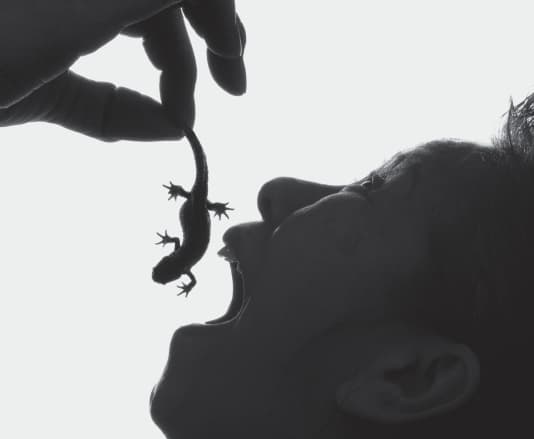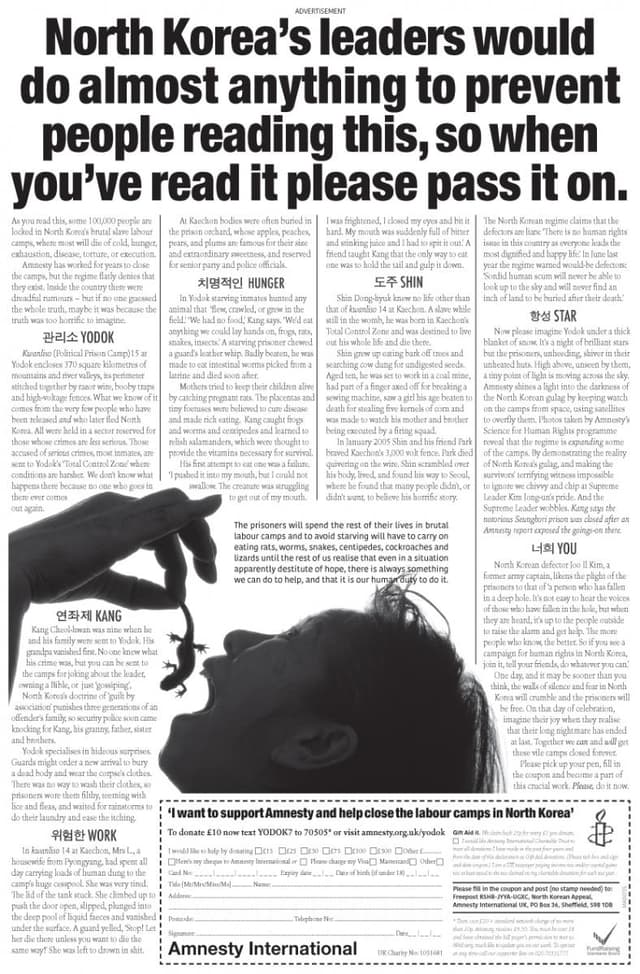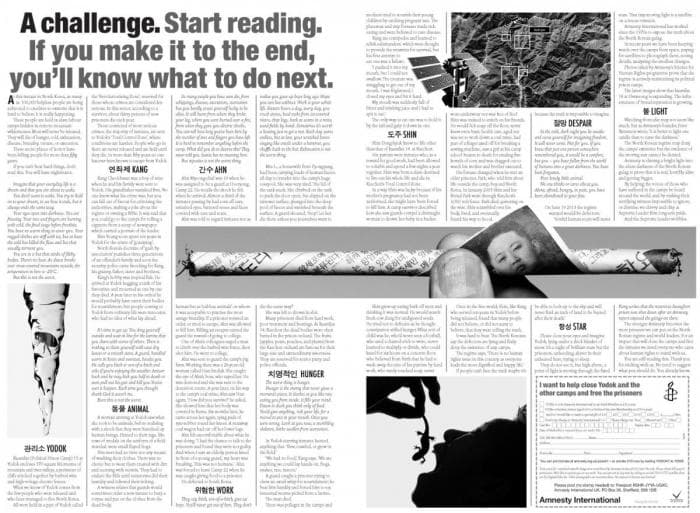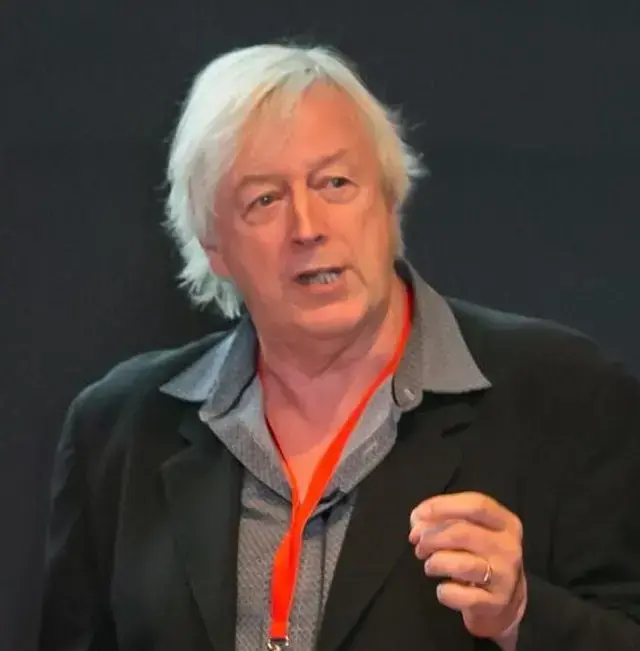Amnesty International press advertisement — North Korea’s death camps
This double page special feature appeared in all the UK quality press on the weekend of 14th December 2013, beautifully coinciding with wide editorial coverage of deteriorating political stability in North Korea.
- Written by
- Ken Burnett
- Added
- June 03, 2014
In Yodok starving inmates hunted anything that ‘flew, crawled, or grew in the field.’
‘We had no food,’ Kang says. ‘We would eat anything we could lay hands on, frogs, snakes, rats, insects.’ A guard caught a prisoner trying to chew an oxtail whip for nourishment; he beat him harshly and forced him to eat intestinal worms picked from a latrine. The man died.
There was pellagra in the camps. Mothers tried to nourish their young children by catching pregnant rats. The placentas and tiny foetuses made rich eating and were believed to cure disease. Kang ate centipedes and learned to relish salamanders, which were thought to provide the vitamins for survival, but his first attempt to eat one was a failure.

 View original image
View original image
SOFII presents the first advertisement to show Amnesty’s deliberate return to a style of communication that the organisation hasn’t used since the mid 1990s.
After the initial insertions in December 2013 (see on the right) Amnesty again ran double page and single page versions of the North Korea ‘Yodok’ ads in Mid February and in late March 2014. The single page version is shown below.
Though considerably abridged from the original double page spread the response from the single page ad has proved to be marginally better, cost per reply. Though not half of the media cost, the single page is substantially less expensive than the dps.
For a summary of the response from and cost-effectiveness of these ads, see results box below.
Results
|
You can join Amnesty here to add your voice to close North Korea’s death camps.




 ‘Human interest stories and empathy have always been at the heart of how we campaign, and these are undiluted stories that can’t fail to move the reader. Stories are our stock in trade. It’s a simple formula and that’s what Amnesty is, stripped back: a story and a refusal to accept the status quo.’
‘Human interest stories and empathy have always been at the heart of how we campaign, and these are undiluted stories that can’t fail to move the reader. Stories are our stock in trade. It’s a simple formula and that’s what Amnesty is, stripped back: a story and a refusal to accept the status quo.’














